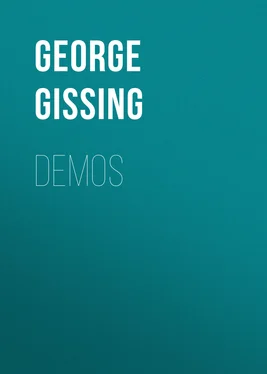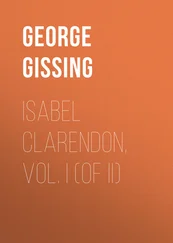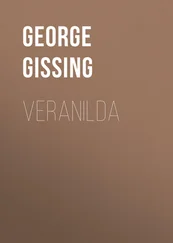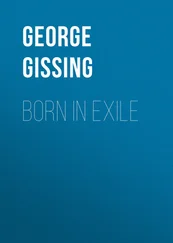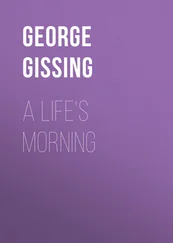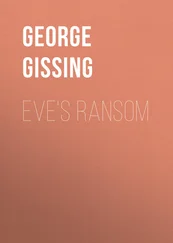George Gissing - Demos
Здесь есть возможность читать онлайн «George Gissing - Demos» — ознакомительный отрывок электронной книги совершенно бесплатно, а после прочтения отрывка купить полную версию. В некоторых случаях можно слушать аудио, скачать через торрент в формате fb2 и присутствует краткое содержание. Жанр: foreign_prose, literature_19, foreign_antique, на английском языке. Описание произведения, (предисловие) а так же отзывы посетителей доступны на портале библиотеки ЛибКат.
- Название:Demos
- Автор:
- Жанр:
- Год:неизвестен
- ISBN:нет данных
- Рейтинг книги:3 / 5. Голосов: 1
-
Избранное:Добавить в избранное
- Отзывы:
-
Ваша оценка:
- 60
- 1
- 2
- 3
- 4
- 5
Demos: краткое содержание, описание и аннотация
Предлагаем к чтению аннотацию, описание, краткое содержание или предисловие (зависит от того, что написал сам автор книги «Demos»). Если вы не нашли необходимую информацию о книге — напишите в комментариях, мы постараемся отыскать её.
Demos — читать онлайн ознакомительный отрывок
Ниже представлен текст книги, разбитый по страницам. Система сохранения места последней прочитанной страницы, позволяет с удобством читать онлайн бесплатно книгу «Demos», без необходимости каждый раз заново искать на чём Вы остановились. Поставьте закладку, и сможете в любой момент перейти на страницу, на которой закончили чтение.
Интервал:
Закладка:
Again did the stentor-note of Daniel ring forth, and it was amid thunderous cheering that Richard left his chair and moved to the front of the platform. His Sunday suit of black was still that with which his friends were familiar, but his manner, though the audience probably did not perceive the detail, was unmistakably hanged. He had been wont to begin his address with short, stinging periods, with sneers and such bitterness of irony as came within his compass. To-night he struck quite another key, mellow, confident, hinting at personal satisfaction; a smile was on his lips, and not a smile of scorn. He rested one hand against his side, holding in the other a scrap of paper with jotted items of reasoning. His head was thrown a little back; he viewed the benches from beneath his eyelids. True, the pose maintained itself but for a moment. I mention it because it was something new in Richard.
He spoke of the land; he attacked the old monopoly, and visioned a time when a claim to individual ownerships of the earth’s surface would be as ludicrous as were now the assertion of title to a fee-simple somewhere in the moon. He mustered statistics; he adduced historic and contemporary example of the just and the unjust in land-holding; he gripped the throat of a certain English duke, and held him up for flagellation; he drifted into oceans of economic theory; he sat down by the waters of Babylon; he climbed Pisgah. Had he but spoken of backslidings in the wilderness! But for that fatal omission, the lecture was, of its kind, good. By degrees Richard forgot his pose and the carefully struck note of mellowness; he began to believe what he was saying, and to say it with the right vigour of popular oratory. Forget his struggles with the h-fiend; forget his syntactical lapses; you saw that after all the man had within him a clear flame of conscience; that he had felt before speaking that speech was one of the uses for which Nature had expressly framed him. His invective seldom degenerated into vulgar abuse; one discerned in him at least the elements of what we call good taste; of simple manliness he disclosed not a little; he had some command of pathos. In conclusion, he finished without reference to his personal concerns.
The chairman invited questions, preliminary to debate.
He rose half-way down the room,—the man who invariably rises on these occasions. He was oldish, with bent shoulders, and wore spectacles—probably a clerk of forty years’ standing. In his hand was a small note-book, which he consulted. He began with measured utterance, emphatic, loud.
‘I wish to propose to the lecturer seven questions. I will read them in order; I have taken some pains to word them clearly.’
Richard has his scrap of paper on his knee. He jots a word or two after each deliberate interrogation, smiling.
Other questioners succeeded. Richard replies to them. He fails to satisfy the man of seven queries, who, after repeating this and the other of the seven, professes himself still unsatisfied, shakes his head indulgently, walks from the room.
The debate is opened. Behold a second inevitable man; he is not well-washed, his shirt-front shows a beer-stain; he is angry before he begins.
‘I don’t know whether a man as doesn’t ‘old with these kind o’ theories ‘ll be allowed a fair ‘earin—’
Indignant interruption. Cries of ‘Of course he will!’—‘Who ever refused to hear you?’—and the like.
He is that singular phenomenon, that self-contradiction, that expression insoluble into factors of common-sense—the Conservative working man. What do they want to be at? he demands. Do they suppose as this kind of talk ‘ll make wages higher, or enable the poor man to get his beef and beer at a lower rate? What’s the d—d good of it all? Figures, oh? He never heered yet as figures made a meal for a man as hadn’t got one; nor yet as they provided shoes and stockings for his young ‘uns at ‘ome. It made him mad to listen, that it did! Do they suppose as the rich man ‘ll give up the land, if they talk till all’s blue? Wasn’t it human natur to get all you can and stick to it?
‘Pig’s nature!’ cries someone from the front benches.
‘There!’ comes the rejoinder. ‘Didn’t I say as there was no fair ‘earing for a man as didn’t say just what suits you?’
The voice of Daniel Dabbs is loud in good-tempered mockery. Mockery comes from every side, an angry note here and there, for the most part tolerant, jovial.
‘Let him speak! ‘Ear him! Hoy! Hoy!’
The chairman interposes, but by the time that order is restored the Conservative working man has thrust his hat upon his head and is off to the nearest public-house, muttering oaths.
Mr. Cullen rises, at the same time rises Mr. Cowes. These two gentlemen are fated to rise simultaneously. They scowl at each other. Mr. Cullen begins to speak, and Mr. Cowes, after a circular glance of protest, resumes his seat. The echoes tell that we are in for oratory with a vengeance. Mr. Cullen is a short, stout man, very seedily habited, with a great rough head of hair, an aquiline nose, lungs of vast power. His vein is King Cambyses’; he tears passion to tatters; he roars leonine; he is your man to have at the pamper’d jades of Asia! He has got hold of a new word, and that the verb to ‘exploit.’ I am exploited, thou art exploited,— he exploits! Who? Why, such men as that English duke whom the lecturer gripped and flagellated. The English duke is Mr. Cullen’s bugbear; never a speech from Mr. Cullen but that duke is most horribly mauled. His ground rents,—yah! Another word of which Mr. Cullen is fond is ‘strattum,’—usually spelt and pronounced with but one t midway. You and I have the misfortune to belong to a social ‘strattum’ which is trampled flat and hard beneath the feet of the landowners. Mr. Cullen rises to such a point of fury that one dreads the consequences—to himself. Already the chairman is on his feet, intimating in dumb show that the allowed ten minutes have elapsed; there is no making the orator hear. At length his friend who sits by him fairly grips his coat-tails and brings him to a sitting posture, amid mirthful tumult. Mr. Cullen joins in the mirth, looks as though he had never been angry in his life. And till next Sunday comes round he will neither speak nor think of the social question.
Mr. Cowes is unopposed. After the preceding enthusiast, the voice of Mr. Cowes falls soothingly as a stream among the heather. He is tall, meagre, bald; he wears a very broad black necktie, his hand saws up and down. Mr. Cowes’ tone is the quietly venomous; in a few minutes you believe in his indignation far more than in that of Mr. Cullen. He makes a point and pauses to observe the effect upon his hearers. He prides himself upon his grammar, goes back to correct a concord, emphasises eccentricities of pronunciation; for instance, he accents ‘capitalist’ on the second syllable, and repeats the words with grave challenge to all and sundry. Speaking of something which he wishes to stigmatise as a misnomer, he exclaims: ‘It’s what I call a misnomy!’ And he follows the assertion with an awful suspense of utterance. He brings his speech to a close exactly with the end of the tenth minute, and, on sitting down, eyes his unknown neighbour with wrathful intensity for several moments.
Who will follow? A sound comes from the very back of the room, such a sound that every head turns in astonished search for the source of it. Such voice has the wind in garret-chimneys on a winter night. It is a thin wail, a prelude of lamentation; it troubles the blood. The speaker no one seems to know; he is a man of yellow visage, with head sunk between pointed shoulders, on his crown a mere scalp-lock. He seems to be afflicted with a disease of the muscles; his malformed body quivers, the hand he raises shakes paralytic. His clothes are of the meanest; what his age may be it is impossible to judge. As his voice gathers strength, the hearers begin to feel the influence of a terrible earnestness. He does not rant, he does not weigh his phrases; the stream of bitter prophecy flows on smooth and dark. He is supplying the omission in Mutimer’s harangue, is bidding his class know itself and chasten itself, as an indispensable preliminary to any great change in the order of things. He cries vanity upon all these detailed schemes of social reconstruction. Are we ready for it? he wails. Could we bear it, if they granted it to us? It is all good and right, but hadn’t we better first make ourselves worthy of such freedom? He begins a terrible arraignment of the People,—then, of a sudden, his voice has ceased. You could hear a pin drop. It is seen that the man has fallen to the ground; there arises a low moaning; people press about him.
Читать дальшеИнтервал:
Закладка:
Похожие книги на «Demos»
Представляем Вашему вниманию похожие книги на «Demos» списком для выбора. Мы отобрали схожую по названию и смыслу литературу в надежде предоставить читателям больше вариантов отыскать новые, интересные, ещё непрочитанные произведения.
Обсуждение, отзывы о книге «Demos» и просто собственные мнения читателей. Оставьте ваши комментарии, напишите, что Вы думаете о произведении, его смысле или главных героях. Укажите что конкретно понравилось, а что нет, и почему Вы так считаете.
